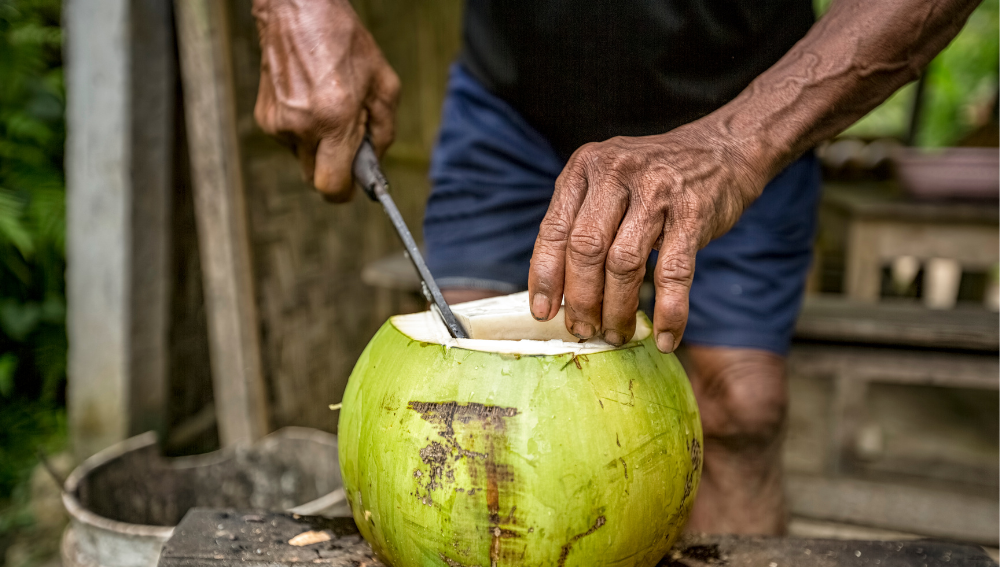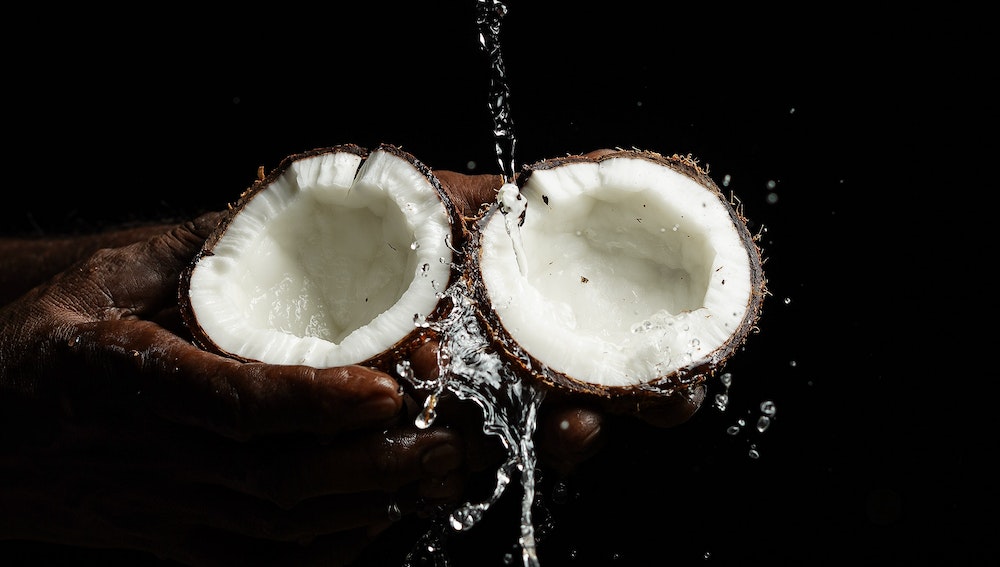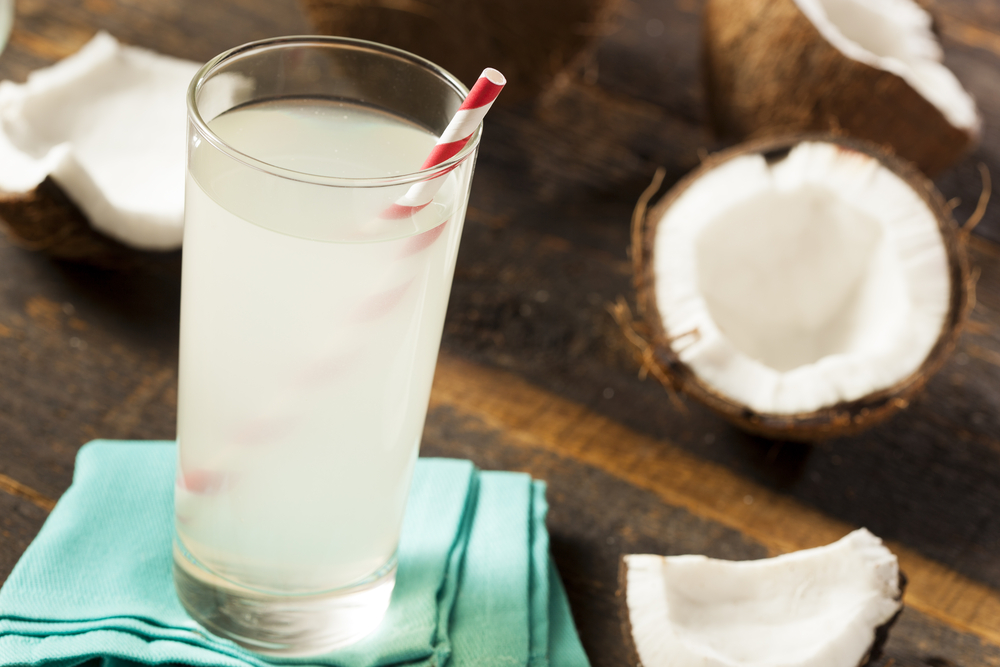Have you ever needed evaporated cane juice for a recipe and soon realized you were entirely out of evaporated cane juice? No need to fret; there are many substitutes you can use, such as raw sugar, coconut sugar, Molasses, or even honey!
Is Evaporated Cane Juice the Same as Sugar?
A common misapprehension you may have heard is that evaporated can juice is the same as white table sugar. Although evaporated cane juice and white table sugar are almost identical in flavor and nutritional value, there are a few slight differences you should be aware of. The main difference between evaporated cane juice and white table sugar is the amount of processing that each goes through.
The evaporated cane juice, also known as unrefined sugar, goes through significantly less processing than evaporated cane juice. White table sugar is stripped of the natural molasses that natural cane sugar contains. Evaporated cane juice has flecks of molasses giving it that distinct darker caramel color. As a result, evaporated cane juice contains more nutrients and minerals than white table sugar.
Why is Evaporated Cane Juice Added to Food?
The most common reason you would add evaporated cane juice to food or beverages is for an improved and sweeter taste. Evaporated cane juice is often added to baked goods such as pies, cakes, or cookies as they already have an intense flavor, and evaporated cane juice’s neutral flavor will not take away from the extreme flavor profile.
You could also use evaporated cane juice in cooking to add a bit of color or as a garnish for your dish.
What Can I Substitute for Evaporated Cane Juice?
1. Maple Syrup

One substitute that you could use in place of evaporated cane juice is maple syrup. Boiling the sap of a maple tree produces maple syrup. During this process, the sugar crystals would be filtered into containers that will be stored and used in the future for storage and processing. Averagely it takes 40 gallons of maple sap to produce one gallon of maple syrup.
Maple syrup could be a perfect substitute for evaporated cane juice, as both maple syrup and evaporated cane juice has a very similar glycemic index of 54 and 55. Maple syrup can convey an incredible flavor profile of not horrendously sweet, with traces of vanilla and caramel as well as minerals, antioxidants, amino acids, sucrose, and some protein.
2. Brown Sugar
Brown sugar, derived from sugar beet, is made by combining granulated sugar and molasses, containing 15% molasses. Molasses is what gives brown sugar its’ distinctive color. Brown sugar could make a great alternative to evaporated cane juice as it is high in nutritional value and minerals like magnesium, phosphorus, and iron.
Since it goes through less processing than most sugars, it retains its nutrients. One hundred grams of brown sugar contains 377 calories, whereas white sugar contains 385 calories. You are able to use the same quantity of brown sugar as you would evaporated cane juice.
3. Raw Sugar
Raw sugar, primarily 96 – 99% of sucrose, can also be known as turbinado sugar. Raw sugar, like most sugars, is slightly sweet in taste and slightly brown in color. Raw sugar is also less processed, resulting in all the nutrients remaining in their natural and original form. You may consider raw sugar a healthier alternative to evaporated cane juice as it is commonly organic.

4. White Granulated Sugar
The most common and staple substitute for evaporated cane juice is white granulated sugar. The process of refining cane sugar or beet sugar into white granulated sugar involves the blending of beet sugar with molasses. As a result of this process, white granulated sugar is composed primarily of sucrose at 99%, which brings white sugar to 68 in the glycemic index.
White granulated sugar is not the best substitute for evaporated cane sugar if you are looking for a healthier alternative. Still, it is an ideal substitute if you plan to use it in baking! White granulated sugar contains 16 grams of calories in a tablespoon and can be a quick energy source, but it has excess carbs.
5. Coconut Sugar
One of the finer substitutes for evaporated cane juice is coconut sugar. Coconut sugar, derived from the evaporated sap of the flow bud stem of the coconut palm tree, is high in valuable nutrients like potassium, sodium, and magnesium. Although it is rich in nutrients, it is not as healthy as you think. Coconut sugar is highly processed, which already makes it less healthy. However, it does have a decently lower glycemic index of 35 to 55, so it does not affect your blood glucose level.
That said, coconut sugar can be a great alternative to evaporated cane juice as it tastes similar but is noticeably less sweet than evaporated cane juice. It also contains fewer calories than evaporated cane juice, another plus of using coconut sugar as a replacement. Coconut sugar is also a bit more coarse than white granulated sugar so keep this in mind before you use coconut sugar as a substitute for evaporated cane juice.
6. Honey

You may be familiar with how honey is made, derived from the secretions of bees. Honey, with its sweet butterscotch, caramelly flavor, and thick consistency, is the oldest known sweetener to man, dating back to 2100 B.C. Honey contains essential minerals like calcium, iron, magnesium, and antioxidants, making it ideal for wound care!
Honey ranges from 37 to 78, with an average of 55 on the glycemic index scale, containing 56% fructose and 44% glucose. Honey is also high in carbs, with 6 grams in one teaspoon. One teaspoon of honey contains 21 calories, while evaporated cane juice contains 15 per teaspoon. With that, honey does have a higher caloric count, which you will want to steer clear of if you are on a diet of any sort.
Since it is more of a liquid rather than a granule, you can use 3/4 of the honey you would use for evaporated cane juice. Add a 1/2 teaspoon of baking powder for every cup of honey to give it that same taste as evaporated cane juice.
7. Stevia
Stevia, derived from the dried leaves of the stevia plant, will be a suitable substitute if you are looking for a natural, low-calorie, plant-based alternative to evaporated cane juice. Stevia contains zero calories, and since it is a non-nutritive sweetener, it is low on the glycemic index scale with zero. Since it has a zero on the glycemic index scale, it will not affect your body’s glucose level making it a great substitute if you have diabetes!
Averagely, stevia is 300 times sweeter than evaporated cane juice. One cup of white sugar equals one teaspoon. If you plan to use powdered stevia, start with a 1/4 teaspoon and taste as you add more.
8. Agave Nectar

Agave nectar, also known as maguey syrup, is produced from a species of agave plant, making it a gluten-free and less processed option as an alternative to evaporated cane juice. Not only is it gluten-free, but it can provide you with essential vitamins like Vitamin B6 and B12, Vitamin K, and Folate.
Agave nectar can be 1.4 to 1.6 times more sweet than white granulated sugar, making it taste similar to honey. Agave nectar ranks ten on the glycemic index scale, containing 56% fructose, 20% glucose, and a speck amount of sucrose.
When you are using agave nectar as a replacement for evaporated cane juice, decrease your liquids in the recipe by a 1/4, as agave nectar is a bit runnier.
9. Xylitol
Xylitol is another zero-calorie sweetener naturally found in fruits and some vegetables, such as strawberries, raspberries, cauliflower, or apples. Xylitol is a white crystalline, soluble in water, dehydrated into powder form, and found commonly in baked goods, drink powder, candy, pancake syrups, ketchup, and more.
Xylitol is a bit sweeter than evaporated cane juice, so you should adjust your recipe accordingly. If you’d like to cut back on sweetness, use 2/3 of the amount you would for evaporated cane juice. Although it is sweeter in taste, it does not affect your body’s glucose level, so it is a perfect substitute if you have diabetes.
10. Erythritol
Erythritol is a sugar alcohol that is also found naturally in fruits like plums, apples, etc. If you are looking for a zero-calorie and low-carb sweetener to substitute for evaporated cane juice, Erythritol is a safe bet. Erythritol also does not raise your body’s glucose levels making for an excellent substitute if you have diabetes.

However, Erythritol is a lot less sweet than evaporated cane juice, 70% less sweet, in fact! Although it is less sweet, you should substitute every cup of evaporated cane juice in your recipe with 2/3 cup of Erythritol. You can adjust according to taste.
11. Date Sugar
Date sugar is a more uncommon but not impossible alternative to evaporated cane juice. You could probably guess from the name date sugar is derived from dehydrated and ground dates. Date sugar is very sweet and has a molasses flavor, quite similar to cane sugar. Date sugar is also considered a healthier alternative to brown sugar.
Date sugar is a less refined form of sugar. Therefore it does not dissolve in liquid, making it an unideal alternative if you use it in drink recipes. Date sugar is also highly not recommended if you have diabetes as it has a very high glucose content ranging from 71.2 – 81.6%. However, it is high in Vitamin A, minerals, and fiber.
You can use date sugar the same as you would use evaporated cane juice.
12. Molasses
Molasses may be the last thing you think of as an alternative to evaporated cane juice. Molasses actually is a byproduct of the sugar extraction process, poured into molds, allowed to dry, and then crushed and heated until the moisture evaporates from the molasses.

Although it comes from sugar cane plants, it is not nearly as sweet as you’d expect, with a glycemic index rating of 55, and has a similar taste to grapefruit or lemon juice. Because of its intense flavor and being a good source of selenium, copper, calcium, and iron, Molasses is an excellent alternative to evaporated cane juice in your smoothies or tea.
13. Corn Syrup
Last but not least, another alternative you could try to use for evaporated cane juice is corn syrup. Corn syrup is a natural sweetener that is made from corn starch. Removing the hard parts of corn will leave you with the byproduct of corn syrup.
Corn syrup is the syrup version of white granulate sugar, which has a great texture and flavor. Corn syrup isn’t overly sweet but will still give your dish a pleasant taste. Although it isn’t overly sweet, it does rank very high on the glycemic index at 90, making it a poor decision for people with diabetes. However, it is gluten-free and contains no sulfites!
You can use corn syrup the same as you would use evaporated cane juice.
FAQs
Is evaporated cane juice healthy?
Any sugar or similar product is not going to be considered healthy. Although there are healthier options, you can choose. Honey and maple syrup both contain more nutrients than most sugars, but it is the teensiest amount that it is not feasible to call healthy.

Evaporated cane juice can be a healthier alternative to certain sugars like refined sugar or white granulated sugar. As long as you use evaporated cane juice sparingly, it can be part of a healthy diet!
What is the healthiest type of sugar?
Again, no sugar is going to be considered healthy. It is still sugar, not a health food. However, there are healthier options, with honey being your most healthy alternative all in all. If you are looking for a granulated sugar option, then stevia is your safest “healthiest” option.
How much sugar should you have each day?
Everyone varies based on size, shape, gender, and all else, so it is not a one-size-fits-all situation. According to the American Heart Association, a full-grown adult woman should consume no more than 100 calories or 24 grams of sugar daily. A full-grown man should consume no more than 150 calories or 36 grams daily.
Final Thoughts
In conclusion, there are numerous substitutes that you could use in place of evaporated cane juice, such as stevia, honey, white granulated sugar, or even maple syrup. It is up to you to determine which alternative would suit you best, personally.







